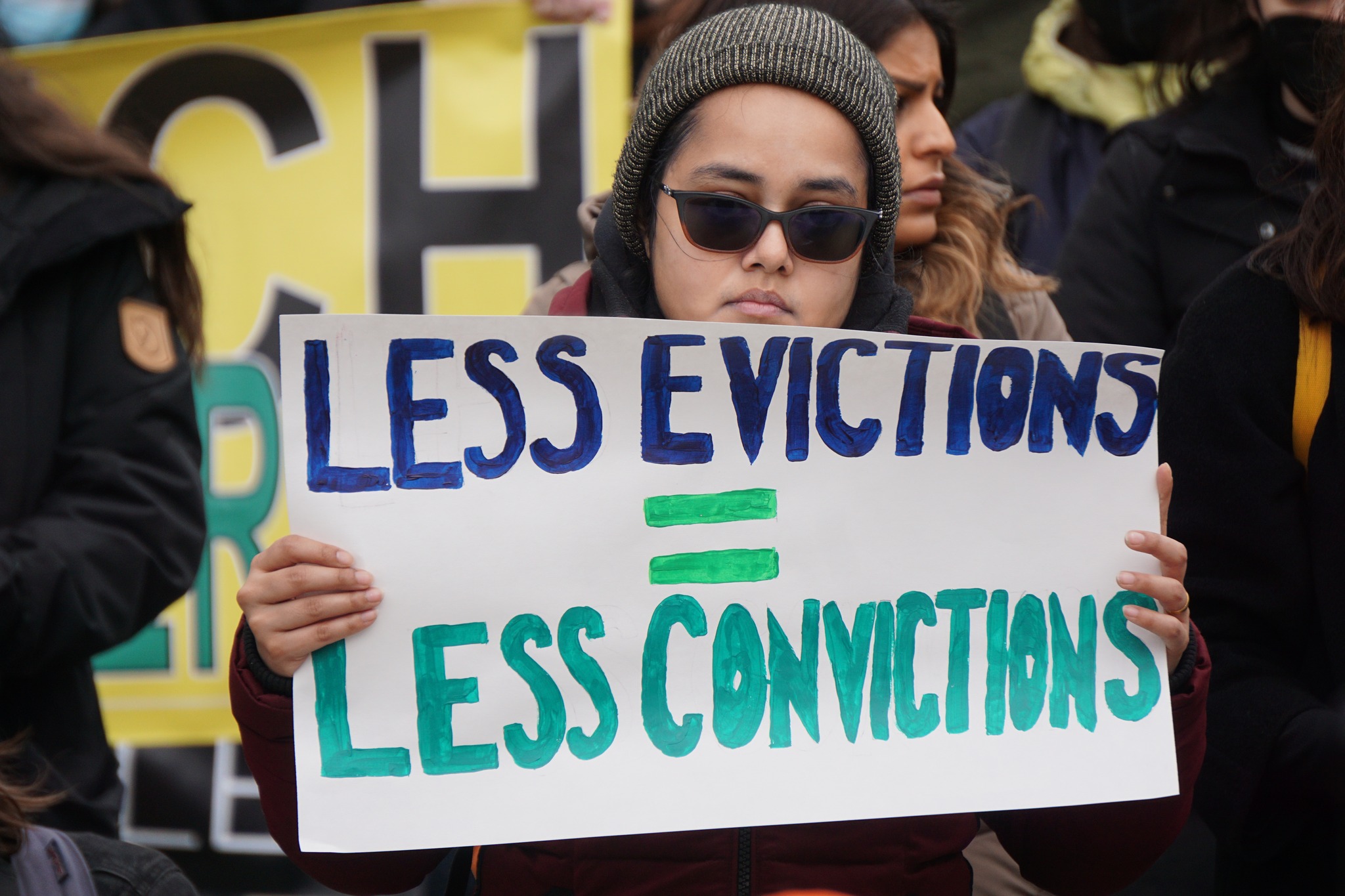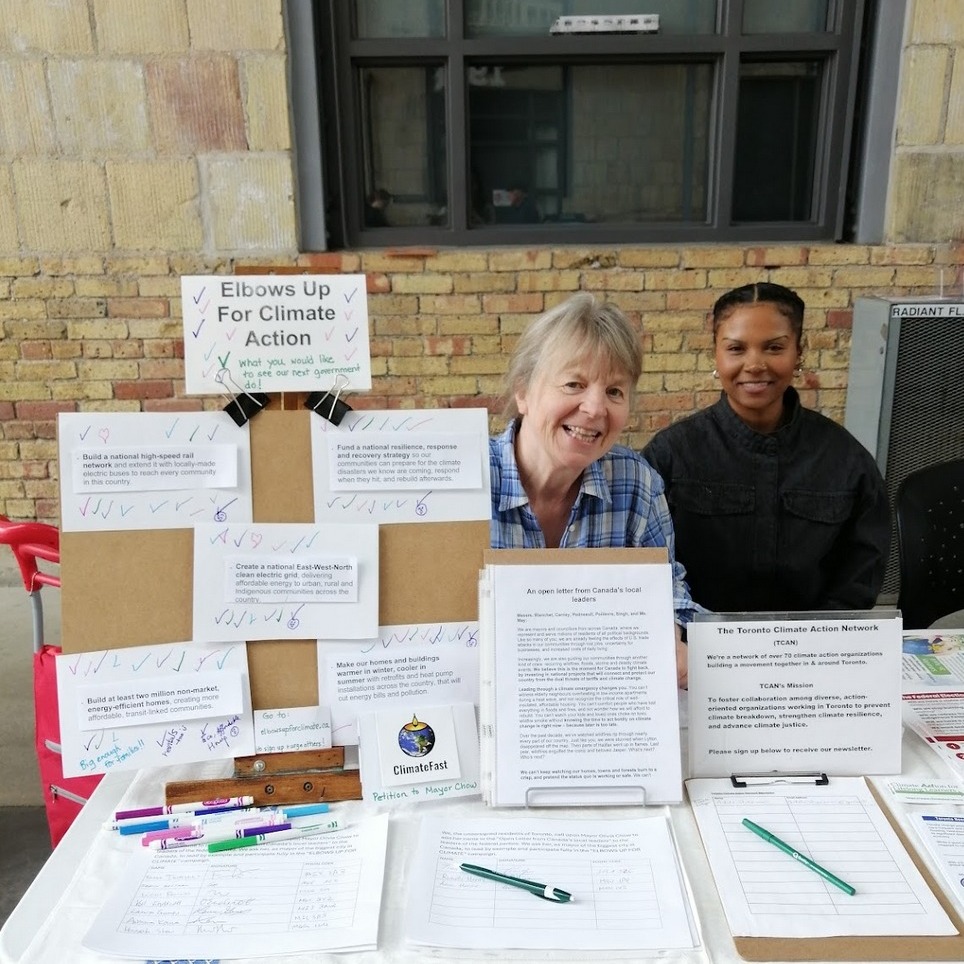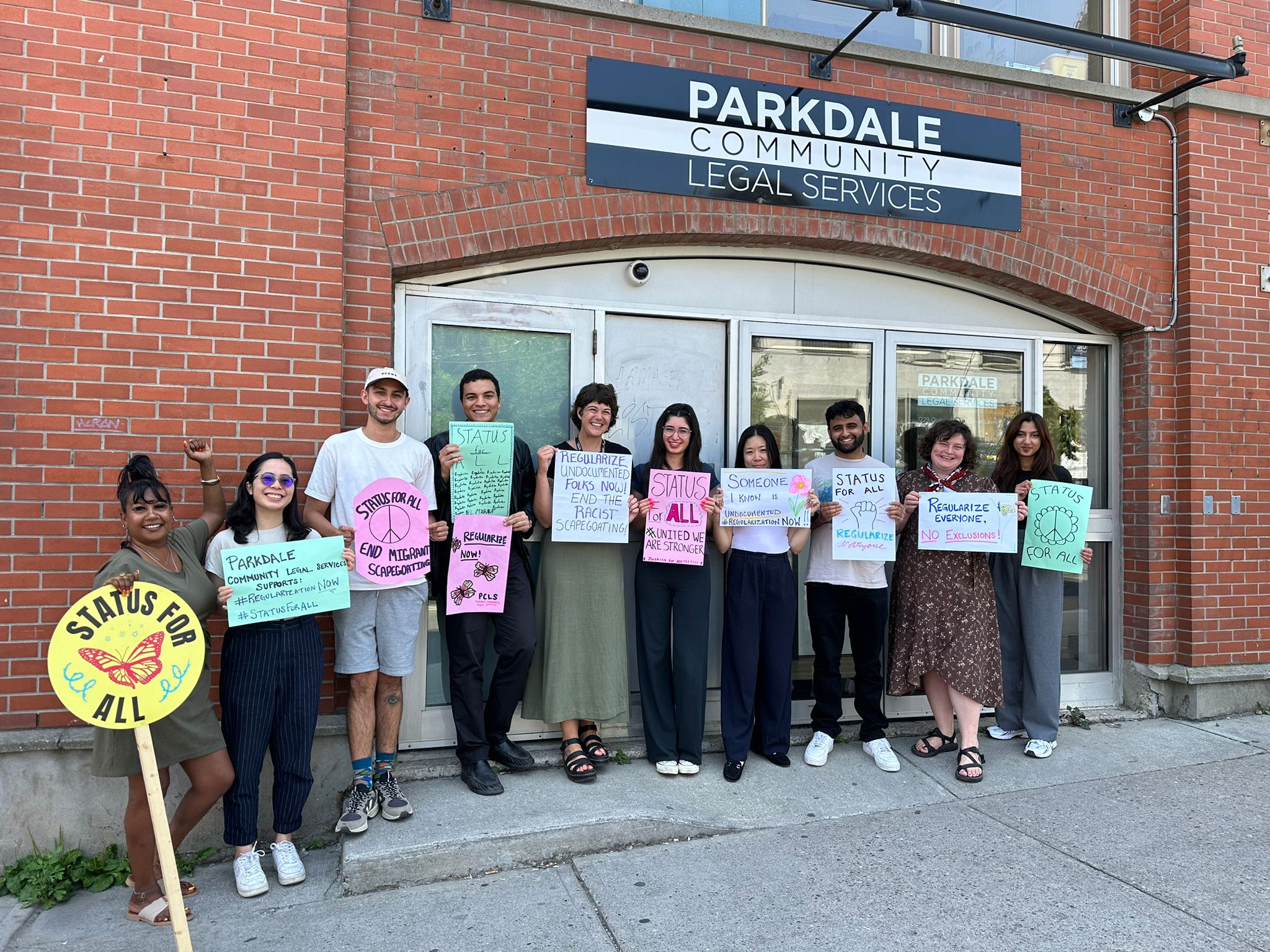Protest has been critical to social reform. Toronto’s grassroots groups say new rules could hinder them
Why It Matters
From injured workers to racialized communities, women to LGBTQ+ groups, protest has historically driven government action and policy towards social change. For many, protest is the only means by which they have access to key decision-makers.

Critics say rules that prevent activists from protesting near certain places in Toronto could hinder groups from deploying their messages when they go into effect in July.
ClimateFast, a small grassroots environmental action group, gets its message out by being physically present in locations across the city, said co-chair Susan Bakshi.
Bakshi and her team annually organize multiple events in the city’s downtown core, including vigils for climate disasters.
“It’s very peaceful, but a large number of people congregate,” she said.
“At the same time, we’re educating people that are walking by and that end up joining us,” she said.
“Because we have such a small budget, we can’t compete with the bigger organizations that may be spreading some of the misinformation about climate and fossil fuels.”
Like Bakshi, protest is a key advocacy tool employed by many grassroots groups and clients of community legal clinics in Toronto.
However, a new bylaw could restrict or discourage demonstrations in certain parts of the city.
Approved in May 2025, the bylaw seeks to “protect vulnerable social infrastructure”, such as places of worship, schools and childcare centres. An owner or operator of these institutions can apply to establish an “access area” in a 50-metre bubble around the building, allowing people to access the service without being blocked by protests and demonstrations.
As shown in a visual produced by TorontoToday, this bylaw leaves much of the downtown core ineligible as a protest or demonstration location.
While the City clarifies that this bylaw “does not prohibit peaceful gatherings, protests or demonstrations, including activities that occur as part of a labour union strike,” Toronto’s grassroots organizations are unconvinced.
Several groups, including unions, wrote to Toronto’s mayor, city managers and councillors before the bylaw’s approval, expressing concern that the proposal would impede people’s Charter rights to protest and dissent.
One such letter came from a group of 67 organizations around the city, led by Social Planning Toronto (SPT).
“There is an ongoing conversation about how much the non-profit sector can be engaged in movement building, but the reality is that the benefits of all the protests that have happened over centuries are what enable us to have the progressive policies that we have today,” said SPT’s Executive Director, Jin Huh.
“We know that historically and currently, women and gender-diverse folks have led public demonstrations to demand access to education, childcare, safety, reproductive health, and other essential rights,” added Sami Pritchard, director of advocacy and communications at the YWCA Toronto, one of the signatories on the letter.
“The concern is that limiting protests outside schools or childcare centres could prevent folks from organizing around issues that directly impact them and their children.”
Another letter came from Douglas Kwan, director of advocacy and legal services at the Advocacy Centre for Tenants Ontario (ACTO). Kwan wrote that most tenants in the province currently live in Toronto.
“Much of the work [of winning rights] hasn’t been because of governments or leaders who feel that it was the right thing to do,” Kwan said. Instead, he said that fighting for historical milestones like same-sex marriage and employment rights has been the hard work of those organizing marches and demonstrations.
The City of Toronto launched a public consultation about the proposed bylaw. City residents and community organizations participated in the process.
However, despite widespread opposition, the city council voted in favour of the proposal on May 22, and the bylaw will come into force on July 2.
Bakshi also wrote to city officials. “ClimateFast is an independent organization that relies on the donations of individuals. As a result, we do not have the funding that major institutions or corporations have access to for marketing or lobbying. Our access to the public, and in many cases the media and elected leadership, is through our protests and rallies.”
In a follow-up interview with Future of Good, Bakshi said she is unsure how the bylaw will affect the organization legally: “We don’t have a budget to have lawyers fight for us.”

Many cities considering “bubble zone” bylaws
From July onwards, those who operate “vulnerable social infrastructure” can request that the City establish an “access area” around a particular building, if they believe that activity to hinder or discourage access to that building, like a demonstration, is occurring.
According to the City of Toronto’s bylaw, ‘vulnerable’ institutions include places of worship, schools, and childcare facilities.
The call for such a bylaw first emerged in December 2024, when the city council directed the city manager to consult the public, legal professionals, and other stakeholders on its applicability.
Toronto follows the lead of cities like Vaughan and Brampton in the GTA, which are specific in their desire to prohibit “nuisance demonstrations.”
Further afield in Calgary, the Safe and Inclusive Access bylaw was written to “ensure safe and inclusive access to recreation facilities and libraries.”
In response, the Canadian Constitution Foundation is leading a legal challenge, claiming that the bylaw “violates core democratic rights to freedom of expression, association and assembly guaranteed by the Charter.”
The City of Ottawa is looking to develop a similar bylaw, which includes hospitals and long-term care facilities on its list of “vulnerable social infrastructure.”
In a follow-up letter from SPT, the organization highlighted that this bylaw has been compared to the safe zones that surround abortion clinics in Ontario.
However, SPT said this bylaw is too broad and lacks clarity on which issues can and cannot be protested.
“There are simply too many ways this bylaw could be used to inhibit democracy, and silence dissent and marginalized voices,” they wrote.
City ignored public consultations
Between March and May 2025, the City ran an anonymous online survey to understand residents’ perspectives on protests and demonstrations. More than 42,000 people responded, with the majority saying that they felt “appreciative and supportive” when they came across a demonstration in Toronto.
Seventy per cent said they had never or rarely been unable to access a building or service because of a protest.
Around two-thirds of respondents said they would not support such a bylaw.
Alongside the online survey, the City of Toronto also organized 16 listening sessions with 70 of the city’s community groups, including religious minorities, newcomers, the LGBTQ+ community, racialized communities, unions and environmental action groups.
Participating organizations included Fridays for Future Toronto, Independent Jewish Voices, the Black Legal Action Centre, and the Toronto Centre for Palestine.
“Across all sectors – labour, youth, faith-based, LGBTQ+, environmental, Indigenous and racialized communities – participants opposed a potential proposed bylaw,” the City wrote in a summary report.
In total, 86 per cent of community groups that participated expressed they would not support such a bylaw before it was approved.
“The singular community voice for support for a proposed bylaw was from representatives of Jewish groups or organizations. However, voices within that one faith-based community were divergent. In fact, several were opposed to a potential proposed bylaw.”
Huh has been surprised by how little reference has been made at City Council to the public consultation and the letters received. “The majority of folks were against this bylaw,” she said. “They didn’t even talk about it.
“So often communities are so frustrated by government because they do all these consultations and they don’t listen to community.”
Several organizations also highlighted that the online survey process was flawed: it was set up to allow one person to respond multiple times or for those outside the city to respond.
The City acknowledged these limitations. “It cannot be determined with confidence that all respondents to the survey reside in Toronto,” they wrote in an overview of the public consultation process.
Marginalized groups need to be able to protest safely, and non-profits need to help them

Huh is concerned that the bylaw will have a chilling effect on protests and demonstrations in Toronto.
Many non-profits and charities were brave in adding their names to the open letter, Huh said, especially considering that frontline service providers are at risk of having their government funding cut.
One of those frontline service providers is the Jane/Finch Community and Family Centre, which operates in one of Toronto’s low-income neighbourhoods. Executive Director Michelle Dagnino is also a board member at SPT.
“One of the challenges that charities and non-profits in Canada have is that there is always a fear around what advocacy looks like, especially in the context of being a registered charitable organization,” Dagnino said.
“And for us [the Jane/Finch Community and Family Centre], this is really core to the work that we do as a community development organization – ensuring people have access to public spaces and being able to speak in public spaces.”
Among the letters that the City Council received was a joint open letter signed by 28 legal organizations and 75 individuals.
“The stated impetus for this law has been the ongoing Palestinian solidarity demonstrations that have filled Toronto’s streets since October 2023,” they wrote.
“We have already heard one City Councillor characterize these largely peaceful mass protests as ‘anarchy’ on our streets. Such exaggerated claims underscore our fear that the bylaw will be used to crack down on Palestinian solidarity protestors and other marginalized groups who are speaking up against oppression.”
The bylaw also risks exposing Black and racialized communities to increased policing, added Butterfly GoPaul, a member at the Jane Finch Action Against Poverty group and a community legal worker at the Parkdale Community Legal Services clinic in the west end of the city.
For Tebasum Durrani from the Injured Workers Community Legal Clinic, the people power that protests wield has a “strategic and emotional impact”, especially when they occur outside major institutions like Queen’s Park and the Ministry of Labour.
Injured workers often come out in search of community and solidarity, but Durrani said the bylaw may lead to more self-censoring and a reduction in visible activism.
While the legal clinic can use other advocacy tools in the kit, Durrani is confident the team will continue to advocate against the bylaw.

